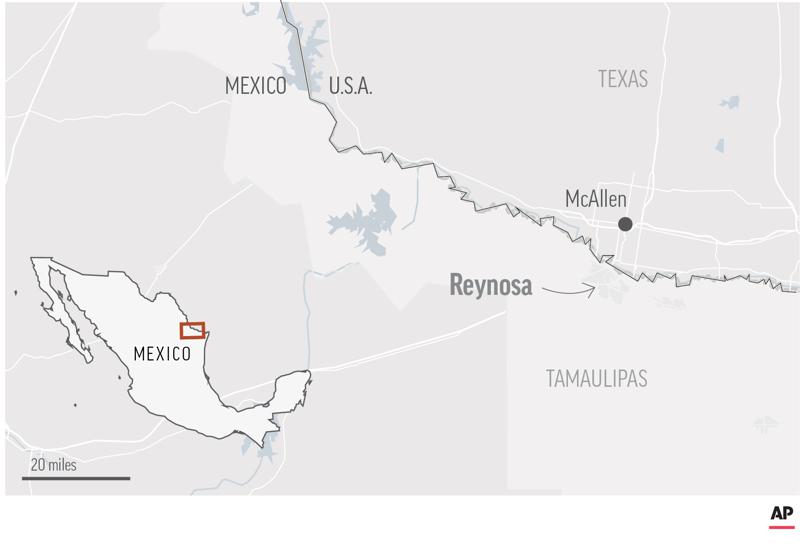

Authorities said Thursday they have arrested four more suspects in the weekend shootings in the northern Mexico border city of Reynosa that killed 19 people, 15 of whom appeared to be innocent bystanders.
Another suspect was detained earlier after being wounded during the apparently random gun attacks Saturday.
Prosecutors in the border state of Tamaulipas said the latest arrests came during raids that also freed 18 kidnap victims, four of whom are believed to be US citizens.
In one raid on a house east of Reynosa, police found 10 kidnap victims, two of them Americans. One man had ben abducted three weeks ago and was still being held even though relatives had paid a ransom for his release, authorities said.
A US woman and her 3-year-old daughter from Edinburgh, Texas, were found in a raid on another house. They had been kidnapped when they entered Mexico to search for the woman’s husband, who had disappeared earlier.
The other 14 kidnap victims were Mexican citizens, ranging from nurses and an engineer to store and business employees, prosecutors said.
Pickup trucks with home-made welded steel plate armor were also found in the raids, which targeted the “Scorpions” and “Cyclones” factions of the Gulf Cartel.
The Scorpions were once a specialized security force for cartel leaders, Now they and the Cyclones operate their own smuggling, trafficking and extortion territory east of Reynosa, in Rio Bravo and Matamoros.
The two groups apparently joined up to attack Reynosa on Saturday in an apparent bid to weaken the rival Metros faction. The Metros have long dominated Reynosa, across the border from McAllen, Texas. The area is a lucrative corridor for trafficking contraband and migrants across the U.S. border.
All three factions — the Metros, the Scorpions and the Cyclones — were part of the Gulf Cartel, but struggles over leadership and territory have raged since the arrest of drug lord Osiel Cárdenas Guillén in 2003 and the cartel’s split with its former henchmen, the Zetas, around 2010.
State prosecutor Irving Barrios said Tuesday that investigations suggested that pickup trucks carrying gunmen from the Scorpions and Cyclones drove into Reynosa and opened fire “to destabilize Reynosa and gain territory there.” He said their aim was “to create terror in a portion of the public so they could come in and take control.”
There is evidence that the groups of hitmen riding in a half-dozen pickup trucks sought to sow panic and also robbed people. Four of the suspects were killed in confrontations with the police and National Guard.
Federal prosecutors have said they are taking over the case, and President Andrés Manuel López Obrador has pledged “a thorough investigation.”
López Obrador also said Thursday that another suspect had been detained in the 2019 ambush slayings of nine US-Mexican dual citizens near the northern border, bringing to 22 the number of arrests in the case.
“Practically all of those who participated (in the killings) have been detained,” the president said.
Adrián LeBarón, the father of one of the murdered woman, wrote in his Twitter account that the suspect arrested was known by the nickname “Tolteca” and was a leader of the gang, adding, “Today there is one criminal less on the streets.”
The three women and six children from the extended Langford, LeBaron and Miller families were ambushed and slain by suspected drug gang assassins on Nov. 4, 2019.
Initial investigations suggested a squad of gunmen from a drug gang that originated in the border city of Ciudad Juarez set up the ambush to kill members of a rival cartel. However, relatives of the victims say that at some point, the gunmen must have known who they were killing.
While López Obrador cast the arrests as proof the Mexican law enforcement system works, the killings in Reynosa, and the latest nationwide homicide figures, suggest president’s “hugs not bullets” crime strategy is doing little to decrease deaths.
There were 2,963 homicides in May, the latest month for which figures are available, higher than May 2020 and well above the numbers that prevailed when López Obrador took office in December 2018.